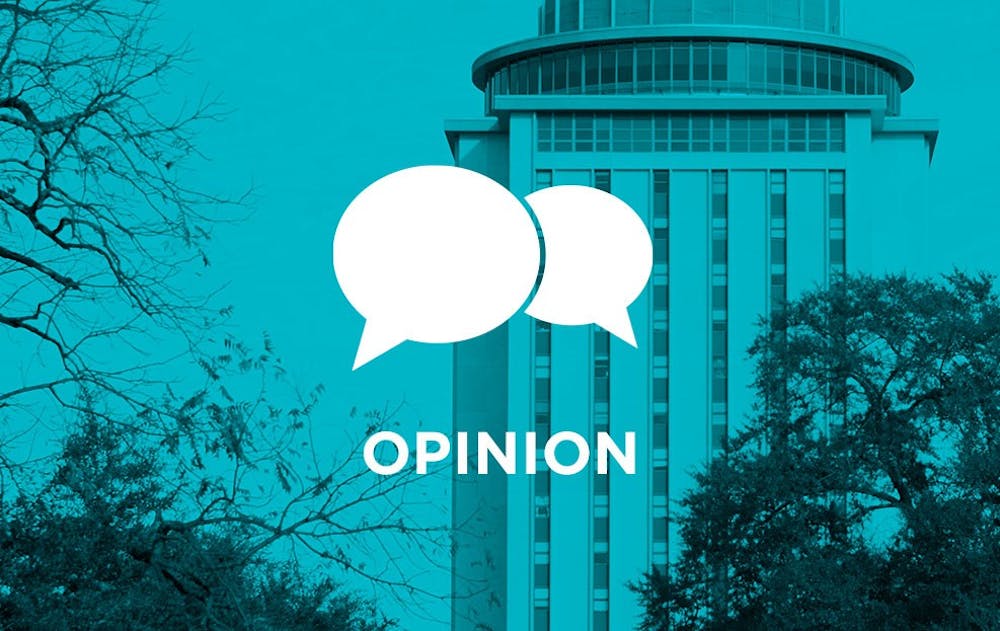Donald Trump and Hillary Clinton may face dismal approval ratings, but both should be glad they don’t quite inspire the ire that Kansas Gov. Sam Brownback, a Republican who struggles to garner support from a quarter of his red state, does. A native of Kansas City, I wholeheartedly fall into the other three-fourths, and seeing Trump appoint Gov. Brownback as one of his advisors should raise serious concern for anyone familiar with the conservative catastrophe that has become my home state.
Unlike our two polarizing presidential candidates, Brownback can’t thank public distrust or a litany of racist rhetoric for his dreary approval ratings. Rather, the governor’s spiral from landslide election victory to the least-liked governor in the nation begins with his choice to make Kansas, as he put it, “a real live experiment” of conservative economics.
With the vision of a pro-growth policy in mind, Brownback curtailed income taxes for wealthy individuals and eliminated corporate income tax for than 100,000 businesses, effectively rehashing trickle-down economics. Tea Party Reaganites rejoiced, reminiscing to the good ole days when everyone seemed to liken tax cuts to prosperity.
But as the increased revenues from new business and growth failed to materialize, the state was forced to strip down entitlements and slash its education budget. The policy’s proponents argued that the plan just needed time, but Kansas’ coffers offered no rainy day fund; the state immediately began to slip. Brownback’s proudly proclaimed “experiment” caused a $688 million budget loss in the first 12 months of its implementation alone. Six years later, classrooms, pension funds and transportation have all seen their budgets shrink by hundreds of millions due to the platform’s inability to produce revenue for the state.
So what gives? Was the failure just a fluke? Did your macroeconomics professor lie? Did corrupt accountants siphon all the gains away?
From the ashes of prairie grass and cornfields, Americans can learn a powerful lesson about taxation: Theory doesn’t always equate to practice. Tax breaks can be beneficial on the margin, but across the board, long-term cuts have continuously struggled to produce enough growth to offset loss in revenues.
While the national economy has begun to pull itself up since the collapse of 2008, Kansas’ growth has struggled to keep pace, posting a measly 4.8 percent growth in GDP, compared to 11.9 percent nationally, since the plan’s adoption. The only potentially positive result of the Kansas crisis is that it shows America exactly what not to do. Brownback’s move came directly from the fiscal conservative playbook, and yet it fell flatter than the state it bankrupted.
This isn’t to say that the tax cuts don’t encourage business growth. A look at Governor Bill Weld’s handling of Massachusetts in the early 1990s offers a fine example of business tax reform gone right. But lowering taxation rates on such a large scale, as Brownback has done and Trump plans to do, only serves to rob the debt-crippled government of the money it needs to fund the ever increasing entitlements that its citizenry has come to expect. Forget budget funding for education and infrastructure. As hard as it may be for some to admit, American isn’t a free-market utopia where tax cuts yield dollar-for-dollar gains, but rather a quasi-democratic socialist state that shells out 49 percent of its operating budget in Social Security and healthcare programs alone.
This year’s Republican ballot is looking to tax cuts as one of its chief means to restore America to a so-called reign of greatness. The Trump-Pence tax demolition duo plans to cut the income-tax bracket to three tiers, more than halve the corporate income tax and altogether eliminate the estate tax.Conservative, supply-side economics tells us that tax cuts grow the economy: Businesses and individuals pay less to the government and, in turn, spend and invest more bringing in a tide to raise all our individual boats. Everyone likes the sound of less money to the government, more in my wallet. However, no lunch is free, and the Republican plan naturally carries a strikingly hefty price tag.
Americans must move away from dissecting Trump's trivial remarks and debating an impractical wall to address his egregious tax plan that will decimate federal revenues. Should he win the seat in the Oval Office, the government can expect an incredible $5.9 trillion loss across the next decade. Even after accounting for increased growth, that deficit still weighs in at a $3.9 trillion that the government will be forced to produce from somewhere.
You would hope that a presidential candidate would chose a winning example of that party’s economic policies, but perhaps Trump’s admiration of Brownback reveals how far removed he really is from the practicalities of his proposals. No one in their right mind would choose Kansas as a model for the country’s economy. Maybe therein lies the explanation for his choice.
As the presidential debates roll around, Donald Trump will surely continue to babble on about how his tax plan will be the panacea for prosperity. It is easy to accept what we’ve always heard — that tax cuts bring growth — but it takes reflection and reason to look to look at things with a critical eye. The plight of Kansas should be seen as a cautionary tale, not a model for economic success; Brownback’s fiscal flounders leave a harrowing warning of what ensues when economic theory fails to manifest in reality.
If you begin to think how nice it would be to have more in your paycheck, I implore you to look inwards to our nation’s backyard — a look at Kansas’ dragging growth, underfunded schools, closing hospitals and depressing prospects — to consider if that is truly the vision you have of an America made great again.

